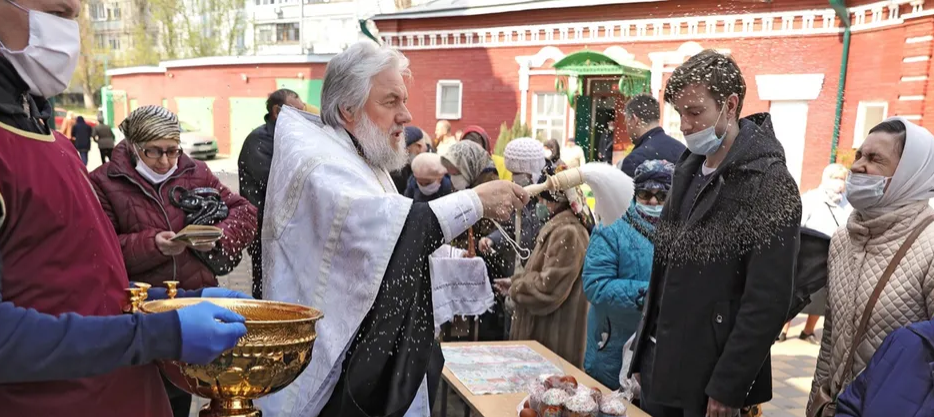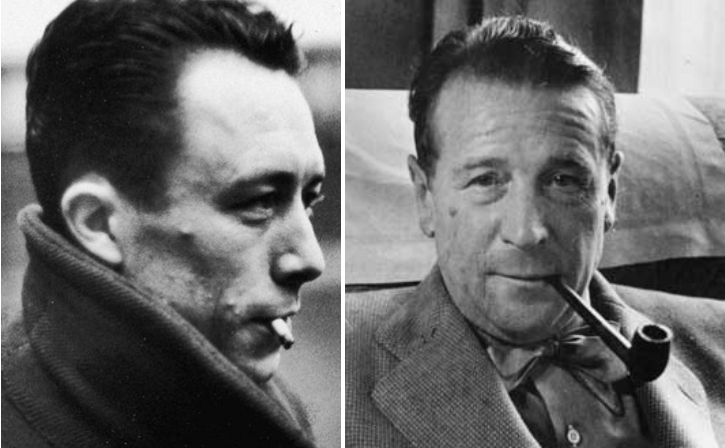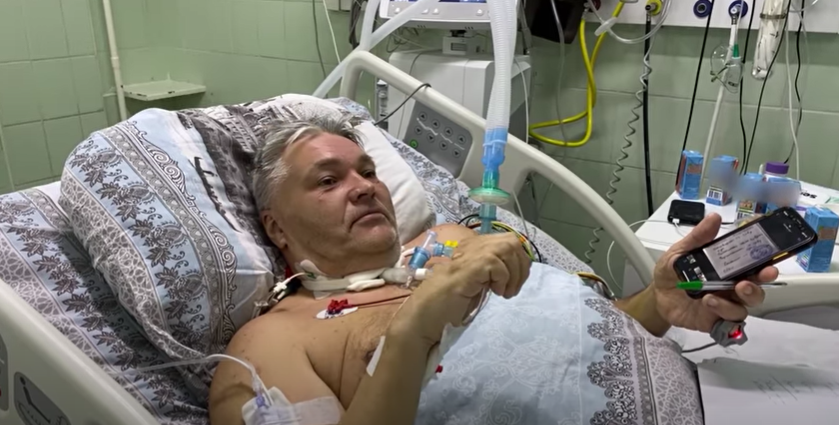PLAYING THE TAMBOURINE AT THE PLAGUE – RUSSIAN REFLECTIONS ON COVID-19 AND CAMUS’S LA PESTE
by John Helmer, Moscow
@bears_withMay 5, 2020
After the episode of the sermon by the Jesuit priest, blaming the plague on the sinfulness of his congregation – “a calamity has befallen you, my brethren; you have deserved it…no earthly power – not even, note this well , vain human science – can shield you from His hand as it reaches out to you”; and after the journalist’s attempt at bribing the militia to arrange his escape from the plague city; and after the municipal administrator’s acknowledgement that “luckily, I have my work”; the visitor from Paris explained to himself in his diary that regarding the old Chinese custom of “playing the tambourine in front of the genie of the plague…it was quite impossible in reality to know whether the tambourine was more effective than other preventive health measures.”
So it seemed to the leading citizens of a town consumed by a pandemic imagined by the French writer Albert Camus seventy-five years ago.
Camus began writing La Peste (“The Plague”) in Oran, Algeria, then a colony of France, at the beginning of 1941, but he didn’t finish it until 1946. Published a year later, it is Camus’s most widely read novel and is often interpreted as an allegory of the German occupation of France which began in May of 1940, and lasted until August 1944. It isn’t that at all; Camus himself didn’t say so.
Medically, the plague of Oran in the book is the bubonic pandemic known in English as the Black Death. Historically that has never been recorded in Oran; cholera was the plague there. An equally lethal form but with different symptoms and contagion is known as pneumonic plague; Camus described many cases of that in his fictional Oran. Because he himself had contracted tuberculosis at the age of 17 and been sent to the central French alps for sanatorium treatment, Camus understood very well the lung failure we now recognize in the serious stages of Covid-19.
The plague of Oran in the novel is reported as starting in mid-April of a year in the 1940s, and ending nine months later in mid-January. In between, the administration ordered a total lockdown, cutting the town off from the outside. Inside the town, district and building quarantines were imposed; along with tracing of contact networks, conversion of public buildings and stadiums to hospitals; nightly curfews; wearing of masks; daily publication of infection case bulletins; and the rushed development of a vaccine.
Reading La Peste in the time of the corona virus we can understand the book, not as an allegory, but as a realistic portrait of what happens to a town and a representative sample of its people during a lethal pandemic.
Realism was also Camus’s declared objective. He makes Joseph Grand, a townhall apparatchik whose job was compiling numbers of infections and deaths in a daily report of rates and graphs, into a would-be novelist in his spare time. But in the hundreds of pages Grand wrote, he never managed to get beyond the first sentence. After narrowly surviving a bout of the plague himself, when he burned his manuscript, he started on the first sentence again. “I’ve cut out all the adjectives”, Camus reported him saying.
The master of French realism without adjectives at the time Camus was composing his story was Georges Simenon with his tales of Jules Maigret, a detective chief inspector in Paris. Camus acknowledged reading and learning from Simenon; they also shared editors at the Gallimard publishing house. But they spent different wars — Camus in the underground resistance press, ill-fed and in hiding; Simenon above ground, comfortably settled and well off. There is almost no German war or occupation in either man’s books.
“Understand and judge not” was Simenon’s motto, expressed in the mouth of Maigret. He didn’t really mean it. “How hard it must be”, Camus’s motto was expressed by Bernard Rieux, the doctor and central character in La Peste, “to live only with what one knows and what one remembers, and deprived of what one hopes.” Camus did mean it. Deprived of hope is what a pandemic like Covid-19 does to you. Understanding that in Moscow today is what reading Camus’s book is for.
Camus was born in Algiers in 1913; educated through university there; married for the first time; became a journalist on local newspapers and a playwright for a city theatre; joined the French Communist Party, then the Algerian Communist Party, then the Algerian People’s Party which was more committed to the emancipation Algeria’s Arab and Berber population. When the colonial administration banned his newspaper in 1940, he left Algiers for Paris to become editor-in-chief of Paris-Soir, but fled south as the Germans took over; and then back to Algeria, to Oran under Vichy administration. He returned to Paris a year later, when his work on the novel was under way.
Left, in the late 1940s Albert Camus; right, Georges Simenon.
In 1957 when Camus was announced the winner of the Nobel Prize for literature, Simenon was so angry he got drunk and struck his wife. Born in 1903, Simenon was ten years older than Camus, and died in his bed, aged 86, in 1989. Camus was killed in a car crash in 1960.
In the pandemic, first comes the fear, then following close behind, the denials.
To Rieux the doctor, who was the first to understand the gravity of what was happening, fear started in the pit of his stomach with “first stirrings of slight nausea”; then his blood pressure began to rise, producing a “slight sense of dizziness”. He also suffered from separation from his wife, safe from the plague but confined in a sanatorium outside the town with another disease. After six months the fear symptoms turned into a constant feeling of tiredness, plus indifference. When treating patients Rieux would resort to habitual routines, like taking a dying boy’s pulse “unnecessarily and rather to escape from the state of powerless inactivity in which he found himself, and when he closed his eyes he could feel this agitation mingled with the throbbing in his own veins.”
Sound familiar? Fatigue sets in as hope recedes into a dark future revealed only by flashes of fright.
For the duration of the powerlessness which Covid-19 has introduced in the mind, and of the fatigue from trying to combat this, habitual routines now include as many readings as are required when the waves of vein-throbbing and anxiety start: a thermometer (norm 36℃-37℃); an exhalation peak flow meter (>425); cuff pump measurement of systolic and diastolic blood pressure (140 over 90); and, medical novelty for this particular pandemic, a pulse-oximeter; this will signal if you are dying of an asymptomatic lack of oxygen saturation (<95 blood="" br="" in="" lungs.="" moving="" the="" through="" your="">Naturally, the time between measurements taken to neutralize fear can stretch with painful slowness. To cope with this, Camus’s characters report distractions such as memorizing the timetable of trains which no longer run; attracting cats into the street in order to land gobs of spit on them; as well as “listening to lectures in a language that one does not understand.”
Deniers and denials come in many forms, starting with overconfidence. No worse than common influenza was the line first heard for Covid-19. Similarly, the Oran plague was “unreal…a bad dream which will end. But” – Camus’s narrator reported – “it does not always end and, from one bad dream to the next, it is people who end… They continued with business, with making arrangements for travel and holding opinions.” In Camus’s story there followed misreading the initial evidence (rats); undercounting the deaths (humans); blaming others (Arabs, the poor, the administrative authorities). Every form of record-keeping was turned into a measurement of time being stretched, for want of an alternative, into such unpredictability that one form of knowledge became as good as any other. Camus’s narrator, though none of his characters, judged this to reflect “their idiotic human faith in the future.”
In the case of Dr Rieux in Oran, it is neither because he is the prompter behind the narration, nor because his medical expertise was what the town administration and people came to rely on, that Camus recommended him as the only authority on which to depend. It was because Rieux was hard at work – with forbearance but without optimism or idealism. After looking out his window and listening to the hum of the town, “Rieux shook himself: this was certainty — everyday work. The rest hung by threads and imperceptible movements; one could not dwell on it. The main thing was to do one’s job well.”
In Moscow it has been the President himself who declared as much when he presented the chiefs of the country’s medical administration, all doctors trained in Russia (not abroad), all paid (poorly) by the state health system (not the privatised one created by the Yeltsin Administration), to take administrative power temporarily because the main thing, according to the President, was that they were doing their job well.
For the revolutionary implications of this in Kremlin policymaking, read this and this.
<95 blood="" br="" in="" lungs.="" moving="" the="" through="" your="">A Covid-19 patient in intensive care unit of Moscow hospital from
<95 blood="" br="" in="" lungs.="" moving="" the="" through="" your="">documentary prepared by federal Health Ministry and first broadcast April 30.
<95 blood="" br="" in="" lungs.="" moving="" the="" through="" your="">Source: https://www.youtube.com/
<95 blood="" br="" in="" lungs.="" moving="" the="" through="" your=""><95 blood="" br="" in="" lungs.="" moving="" the="" through="" your="">Camus condemned the press for its role in the pandemic. Reading the newspapers was for those who had “lost any appearance of critical sense while retaining the appearance of sangfroid. For example, you could see the most intelligent among them pretending to search the newspapers, or radio broadcasts, for reasons to believe that the plague would shortly end”. After trying to conceal the start of the plague, the media calculated that reader demand was insatiable for every kind of fake news, the more sensational the more profitable. “Printers in the town very rapidly realized that this interest might be turned to their advantage,” starting with historical prophecies and “when history itself proved to be short on prophecies, these were commissioned from journalists, who proved, in this respect at least, to be as competent as their counterparts in earlier centuries…Some predictions were based on bizarre calculations involving the number of the year, the number of deaths and the number of months already spent under the plague.” You can’t miss the sharpness of Camus’s irony.
There was one good journalist in Camus’s story – that’s Raymond Rambert. He spent half the book trying to persuade Rieux to write him a medical ticket of leave, and then to bribe gangsters, black marketeers and border guards to allow him to slip out of the town at night. In the end, though, he decided on solidarity with the doctor and the medical volunteers working with him. Rambert didn’t succumb to the disease. Nor in ten months did he write anything for publication. From Camus’s point of view, when Rambert became a moral man, he ceased to be a journalist.
Camus also puts religion to death in his story; that’s to say the established church. The two convents of the town were closed, and their monks and nuns dispersed, billeted on families who would have them. But the town cathedral remained open, and after the lockdown was announced the church authorities organised a week of prayer to culminate in a Sunday mass, with a sermon by Father Panelloux. He commenced with the Old Testament plagues which God had inflicted on the enemies of his believers, the Egyptian ones, as well as the sinners of Sodom and Gomorrah. Then the priest let fly. The plague, he said, “is His way of loving and in truth, it is the only way. This is why, tired of waiting for you to come to Him, He has allowed the scourge to visit you as it has to visit all the cities of sin since history began.”
Camus’s narrator reported that “someone in the hall snorted like an impatient horse.” After the priest had finished the cathedral had emptied, he added: “whether this sermon had any effect on our townspeople is hard to say.” The journalist doesn’t interview them to find out; the doctor doesn’t care. Only the magistrate was found to express his approval. Later on he dies. So too Father Panelloux. Camus adds there was no edification, neither of a religious nor of a medical kind in the death. “The cough grew more and more hoarse and tortured the patient throughout the day… In the midst of his raging fever Panelloux kept his look of indifference and when, the following day, they found him dead, half-falling out of the bed, there was nothing to be read in his expression. They wrote on his card: ‘Doubtful case’.”
In the Russian Church, doubt has been suffered more sharply than Covid-19.

The Rector of Kazan Cathedral, Archpriest Vyacheslav Zhebelev
(centre, without mask), performs the consecration of Easter eggs and cakes
in Volgograd, April 18, 2020. Source: https://meduza.io/
The spread of the virus in the seminaries, convents and monasteries has been especially swift; in the church congregations less so. Metropolitan Gennady of Chelyabinsk was hospitalised in mid-April, according to the church press; then the death of Bishop Veniamin of Zhelenogorsk was announced. They were followed by senior clerics in the Moscow diocese. But throughout the Easter week the churches remained open. A novice priest, who had been hospitalised after testing positive, immolated himself.
Then on April 27, after the celebration of Holy Week, Patriarch Kirill authorized an unsigned order to the clergy to stop the spread of the virus by following the secular rules, closing the monasteries, and also the churches. “In cases where failure to comply with these orders and instructions will result in a person contracting a coronavirus infection and then dying as a result of this infection,” Kirill’s order added, “the perpetrator may be brought to the Church court, and in other cases, to Church administrative responsibility.”
This triggered criticism from among clergy who warned that Kirill’s threat was too late and too little; and that his treasury should be opened to provide urgently needed financial aid to impoverished priests and their parishioners. A larger number of clergymen attacked the patriarch from their pulpits for threatening the salvation of everyone by the halt to the church rites and the closure of church doors. A well-known abbot in Yekaterinburg who fulminated against the patriarch for creating “an electronic Satan’s camp”, was banned from preaching more.
A kind of “magic fundamentalism” is settling on the Russian Church, according to this report, as the faithful have resorted to the religious rites to save their souls. The patriarch’s authority is weakening for the inadequacy of his administrative measures and his refusal to take a clear position on the theology.
For an atheist, ideological sceptic, and political radical like Camus, composing his plague story during the German occupation of France, followed by the US Army occupation of North Africa, including Algeria; and then the liberation, there is a noticeable lack of politics in his story. Not so for the Covid-19 story in Russia, for this is already clear in Russian terms — and not by comparison with the political failures and administrative collapse of Italy, France, the UK and the US. Russian confidence in the Anglo-American ideology of governance for Russia is now in its death throes. The virus is proving to be the sanction that will top all sanctions, and bury them.



No comments:
Post a Comment